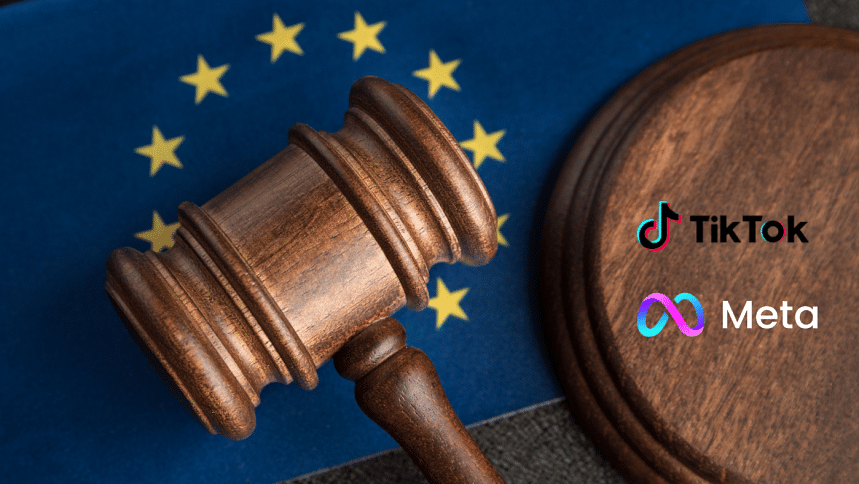Meta and TikTok to begin legal battles with EU on tech fees: Report

Meta Platforms and TikTok have challenged a supervisory fee imposed by the European Union (EU), arguing that the levy is disproportionate and based on flawed calculations, according to a recent report by Reuters.
Both companies appeared before the EU's second-highest court to contest the annual fee introduced under the Digital Services Act (DSA), which became law in 2022. The fee, set at 0.05% of a company's annual global net income, is intended to cover the European Commission's cost of ensuring compliance with the legislation. It applies to Meta, TikTok, and 16 others, as per the report.
The amount each company pays is determined by their average monthly active users and whether they reported a profit or loss in the previous financial year. However, both Meta and TikTok questioned the transparency and fairness of the Commission's methodology.
According to the Reuters report, Meta told the court the company was not seeking to avoid the payment but criticised the lack of clarity in how the fee was calculated.
Meta's lawyer Assimakis Komninos argued that the Commission used the revenue of the entire Meta group rather than of the relevant European subsidiary, resulting in an "implausible and absurd" outcome. Komninos described the fee-setting process as a "black box," and claimed the Commission's approach contradicted the intended spirit of the law.
TikTok's lawyer, Bill Batchelor, offered a similarly strong critique, describing the Commission's calculations as inaccurate and discriminatory. He claimed TikTok's user metrics had been miscounted, with individuals switching between devices being tallied multiple times.
In response, Commission lawyer Lorna Armati defended the methodology and dismissed claims of unequal treatment. She told the panel of five judges that it was appropriate to use consolidated group profits, noting that these financial resources were ultimately available to the platform provider.
Armati also mentioned that the companies had received sufficient information to understand the Commission's calculations and denied any breach of procedural fairness, as per the report.
A final judgment from the Court is expected next year.

 For all latest news, follow The Daily Star's Google News channel.
For all latest news, follow The Daily Star's Google News channel. 








Comments